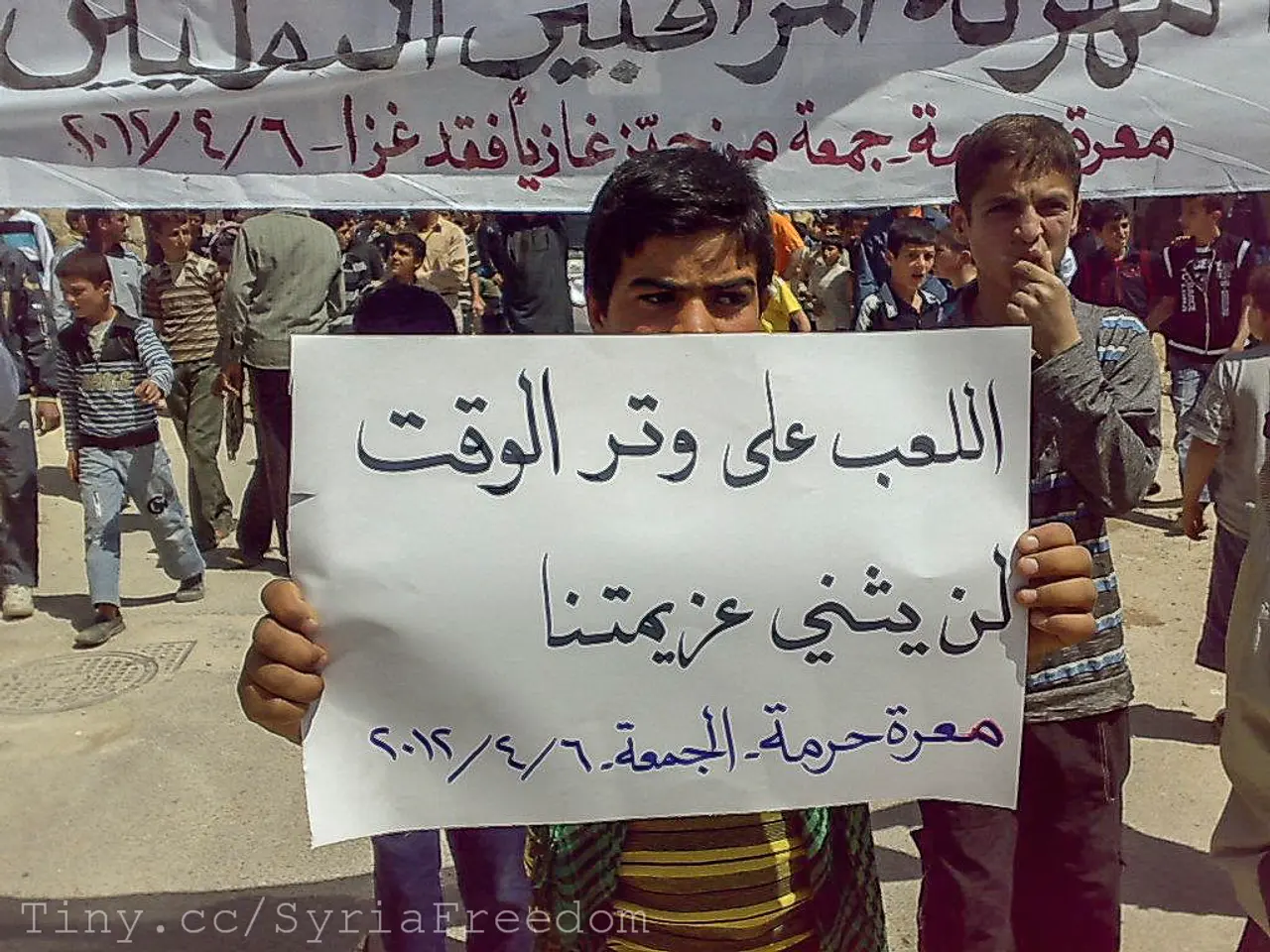Germany's Merz advocates for partial arms embargo against Israel
In a significant shift in policy, German Chancellor Friedrich Merz has suspended arms exports to Israel during the recent conflict with Hamas in Gaza. This decision, made without consulting his cabinet or party colleagues, was framed as a response to Israel's actions in Gaza, aiming to avoid contributing to further escalation.
The response from Merz’s conservative party, the Christian Democratic Union (CDU), and its Bavarian sister party, the Christian Social Union (CSU), has been largely critical. Members of both parties see the suspension as undermining Germany's longstanding commitment to Israel's security and express concern that it could be perceived as rewarding terrorism. This has triggered political backlash within the coalition and among industry stakeholders like German defense manufacturer Renk, which supplies gearboxes for Israeli tanks and is exploring moving some production to the U.S. to bypass the embargo and continue supporting Israel's military needs.
The reason for the suspension, according to Merz, is the concern that German arms would be used in Gaza, potentially aiding expanded Israeli military operations and impeding ceasefire efforts with Hamas. The decision is not an across-the-board halt on all arms exports to Israel but specifically targets supplies that could be used in Gaza.
The conservative bloc's coalition partners, the center-left Social Democrats (SPD), largely support the decision to halt arms exports to Israel. Germany, historically, has been one of Israel's staunchest supporters due to the Holocaust and the special responsibility Germany feels towards Israel. However, the SPD acknowledges the need for caution in the current conflict.
Israeli Prime Minister Benjamin Netanyahu has criticized Merz, stating he "buckled under" pressure and hopes for a change in decision. Netanyahu's criticism is shared by members of Bavaria's CSU party, who also condemn the arms export halt.
Despite the criticism, Merz has maintained that Germany's stance on the Israel-Hamas conflict remains unchanged. He stated that Germany will continue to help Israel defend itself, but cannot supply weapons to a conflict where civilians could be killed. CDU lawmaker Norbert Röttgen supported Merz's decision, stating it was necessary due to the latest decisions by the Israeli government.
The move to partially halt German arms exports to Israel comes after Israel's Security Cabinet announced it would take over Gaza City. UN Chief Antonio Guterres and numerous countries, including the UK, France, and Canada, have condemned this plan, believing it will exacerbate Gaza's ongoing humanitarian crisis.
France and the UK have stated they will formally recognize Palestinian statehood, drawing criticism from Netanyahu. This recognition adds to the international pressure on Israel amidst the ongoing conflict.
In the face of this political turmoil, Merz has taken responsibility for the new policy, stating that solidarity with Israel does not mean supporting every decision by the Israeli government or providing military support in the form of weapons. The future of German-Israeli relations remains uncertain as both parties navigate this complex and sensitive issue.
- The German Chancellor, Friedrich Merz, has faced criticism from his conservative party and coalition partners for suspending arms exports to Israel, with members viewing it as undermining Germany's commitment to Israel's security and potentially rewarding terrorism.
- French and UK governments have announced their intentions to formally recognize Palestinian statehood, drawing criticism from Israeli Prime Minister Benjamin Netanyahu and adding to the international pressure on Israel during the ongoing Israel-Hamas conflict.
- Merz's decision to halt arms exports specifically targets supplies that could be used in Gaza, citing concerns that German arms might aid expanded Israeli military operations and impede ceasefire efforts with Hamas.
- While the conservative bloc, mainly the CDU and CSU parties, have been critical of the arms export halt, Germany's center-left coalition partners, the Social Democrats (SPD), largely support the decision, acknowledging the need for caution in the current conflict.





